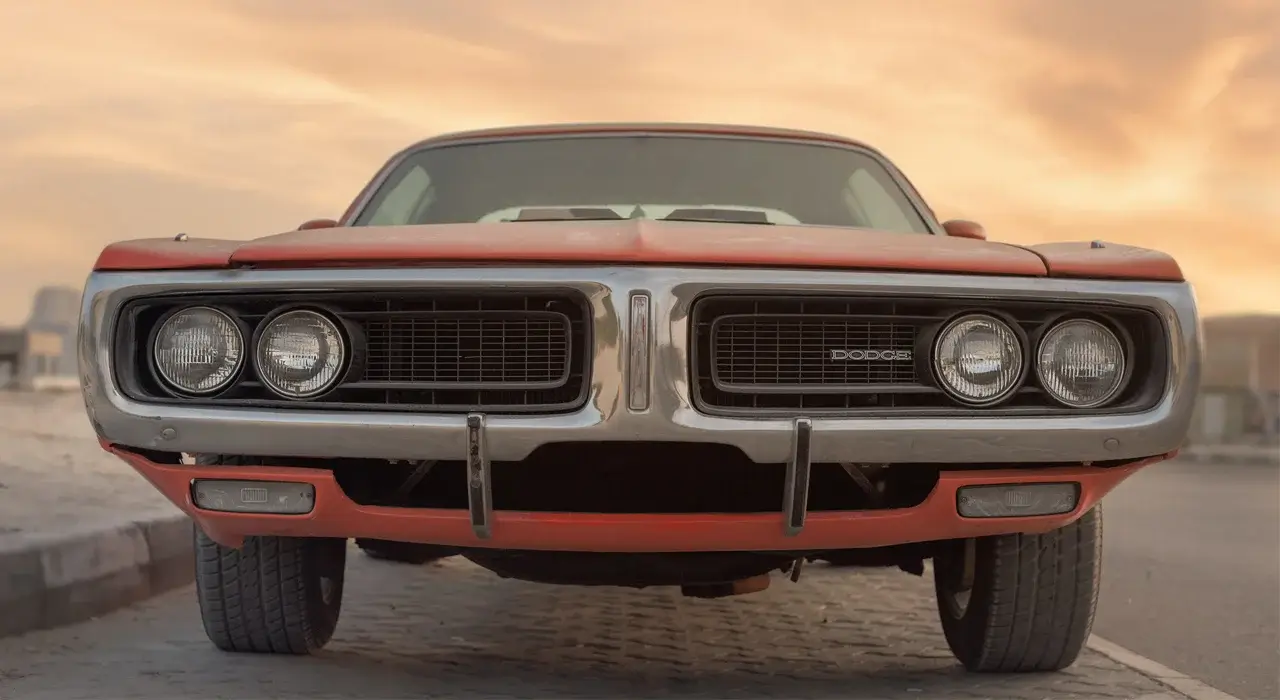As the years go by, driving might become a chore rather than an activity that brings you joy. To get your automotive passion back, you might be tempted to invest in a classic car. After all, when you own such a vehicle, it might feel like you’re in a different time and space. And it’s no wonder when you have a piece of history in the palm of your hand.
But as glamorous as owning a vintage car might seem, there are many things that you need to take into account. Because some of the vehicles are very rare, they can make a dent in your budget. Some of the models might also be costly to maintain. So, when you decide to buy such a car, you need to make your decisions carefully and think about all your options. Here are the running costs to consider when buying a classic car and how to set your budget.
1. Find A Place Where You Can Store The Vehicle
Buying a classic car can be a significant investment. Therefore, you will most likely want the vehicle to be functional and just as good-looking for the years to come. To achieve that, you need to determine where you’d like to store the car.
By keeping the vehicle in a garage, you might be able to prevent some damage from elements such as rain or even the sun. And if you don’t have a garage or can’t store the car on your property, you might need to hire one. Then, you would have to pay rent every month to be able to use the space. So, no matter what your budget for the purchase and running costs is, you should also consider your storage options for the vehicle. Then, you might be able to maintain the car in good condition for longer.
2. Take Into Account The Potential Need For Repairs
It is no surprise that an older car might need more attention from a mechanic. However, if your car is rare or requires more work, it can make the ownership of such a vehicle very expensive. Car owners who don’t have much experience or don’t know much about the technical aspects of cars might want to consider taking a car maintenance course.
There, you’ll be able to learn how to take care of the newest addition to your collection and do some of the simple maintenance tasks yourself. Once you feel more confident in your abilities and have all the necessary information, you might be able to save some money on visits to the mechanic. It will also allow you to get more involved with the vehicle and grow your love for vintage cars.
3. Get Classic Car Insurance Tailored To Your Needs
To protect the investment you made when buying the classic car, you could also get classic car insurance that’s tailored to your needs and requirements. But it can often be difficult to find a policy that suits your lifestyle and budget. With providers like Lancaster Insurance Services, you’ll be able to go through the process of finding classic car insurance with a team of people who share your passion for these vehicles.
That way, you might be able to find the best price for the cover you need and affect your overall expenses positively. And if you have a vintage car that’s difficult to insure, you’ll be able to share your circumstances and find an insurance policy that can fit your situation. Even though you might see insurance only as an additional expense, you shouldn’t underestimate its importance. In the end, it can make all the difference to the vehicle’s safety and your peace of mind.
4. Determine If Your Need To Pay A Vehicle Tax
No matter what kind of car you buy, you should find out what your legal obligations are and if you need to pay a vehicle tax. In April 2022, the government approved a suggestion that if your vehicle was registered more than 40 years ago, you don’t need to pay for the vehicle tax.
If you’d like to take advantage of the exemption, you need to find out when the vehicle you bought was registered. Of course, to see other important information that will help you to determine whether you’re eligible, you should check the government website. And if you’re unsure about any aspect, you should get in contact with a professional who might be able to give you the advice you need the most.
By making sure that everything you do is according to the latest law and guidance, you might be able to avoid future problems and unpleasant situations. And when you ensure that everything is as it should be, you can enjoy the new addition to your collection to the maximum.
5. Figure Out If The Car Is MOT Exempt
Owners of more modern vehicles know that they need to renew their MOT every year. However, when you own a car that was registered more than 40 years ago, you might be eligible for an exemption from the requirement. Even if you find out that you’re eligible for the MOT and vehicle tax exemption, you still have the option to get the car checked when needed.
Those who are planning to use the cars regularly and enjoy the feeling and experience of driving a vintage vehicle might want to ensure that the machine is reliable and safe to take on the road. That might help you to feel calmer about the investment and boost your feeling of safety. But if you find out that you still need to attend MOT or decide to get one voluntarily, you need to count the cost into your overall expenses and adjust your budget.
6. Research The Cost And Availability Of Spare Parts
Even though your classic car is getting the best care possible, some parts might get broken and need replacement. Depending on the model of the vehicle you own, this might become very expensive and make a significant dent in your budget.
If you have a classic car that is very old or extremely rare, it might be nearly impossible to find some of the spare parts. And if you would manage to find the parts you need, they might be costly, and you’d need to be ready to pay the bill to bring your car back on the road.
Popular For You: Zoom Across The Road: Here Are 5 Of The Fastest Cars You Can Get For Under $10K
So, before you invest in a classic car, you should make sure that the spare parts for the model you’d like to buy are on the market and in your budget at the same time. Then, you might find it easier to spread your finances evenly and take the car on your adventures.
7. Keep The Vehicle Clean With The Right Agents
To maintain the look and good condition of your vintage car, you need to clean the vehicle regularly. However, you need to be very careful and do enough research beforehand. When you own a car that is older, you should take into account the age and material of the vehicle.
Just like with any car, you can wash the exterior with water and soap. But to protect the paint and color of the car, you need to ensure that the cleaning agent you use is suitable for older models of cars. Before you bring the vehicle along for an adventure, you should make sure that the car is waxed. That way, it might get better protection from outside elements damaging the car’s design.
And finally, when you’re cleaning the interior, ensure that the detergents used to make the car sparkling clean are suitable for the materials within the car.
8. Stick To Your Budget
If you want to make the most out of the experience that the ownership of a classic car offers, you need to determine what your budget is and stick to it. First, you need to consider your monthly income and any savings that you might have for this purpose.
Then, look at your monthly expenses and see what you have left to work with. If you feel like you need to extend your budget, you might want to assess your spending habits and see if there’s anything you can do to improve the situation.
To use your budget effectively, you need to focus on cars that you can afford and have enough extra financial resources to keep the car running. When you stick to your budget, you might be able to take care of the car properly and perhaps even save enough money to acquire a new addition to your collection.
Conclusion: Protect Your Investment With Regular Maintenance
When you decide to buy a classic car, you need to review your finances. Once you see what you can afford, you might be able to narrow down your options. But even if your budget is more extensive, you should leave enough money for the running costs.
If you’re a beginner and don’t know about mechanical and maintenance tasks too much, you might need to hire a mechanic on a regular basis. If you’d like to push the expenses down, you might want to take a course where you can learn how to do basic maintenance tasks without external help. By making wise decisions and taking into account all of your expenses, you might be able to make your investment worthwhile.
Discover more from Locar Deals
Subscribe to get the latest posts to your email.


